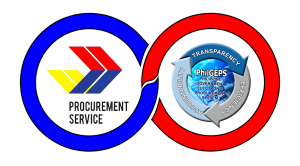Manufacturers and suppliers are investing more money in B2B eCommerce. A quarter of manufacturers currently have an eCommerce website, and 40% of their revenue is produced online, as reported by Digital Commerce 360. Increasing numbers of B2B consumers want a buying procedure closer to what they are accustomed to with B2C online shopping. They prefer a self-service model that gives them control and leads to significantly faster transaction times. In other words, if you’re a supplier or a manufacturer, your clients prefer to make purchases through an online store. Here’s what you need to know about manufacturer digital innovations.

Market Overview
An estimated 73 million monthly active users contributed significantly to the $17 billion eCommerce industry sales in the Philippines in 2021. Through 2025, this is anticipated to expand at a 17% annual rate to reach $24 billion. Due to the COVID-19 pandemic, more Filipinos are working from home and shopping online. On the country’s main eCommerce platforms, goods from Asia-Pacific nations with which the Philippines has free trade agreements are offered for sale. Cosmetics, appliances and electronics, clothing, furniture, health, and home care are some of the most popular product categories of eCommerce. Investments made for manufacturing digital innovations are shaping the way businesses reach their customers.
Digitizing the Manufacturing Industry
Automated inventory management systems and analytics applications can be used by manufacturers to analyze sales progress and pinpoint areas for improvement. Additionally, they can profit from digital marketing techniques like targeted advertising and Search Engine Optimization (SEO). Businesses may boost the productivity of their operations and acquire new worldwide markets by utilizing the power of eCommerce. Manufacturer investments can get the upper hand and advance their business with the appropriate eCommerce solutions.
Manufacturers can thrive in the years to come and stay viable in the market today by utilizing modern eCommerce technologies. Businesses may improve consumer shopping experiences and encourage repeat business by using personalization components like customized product suggestions and automated customer support responses. Manufacturers can also utilize information from online purchases to understand how customers behave and decide on the following:
- Product Creation
- Pricing Techniques
- Marketing Initiatives
Facts and Figures
According to a Research and Markets analysis, the worldwide B2B eCommerce market is estimated to reach $33,317.37 billion by 2030, at a CAGR of 19.7%. Digital shops have the benefit of being freely available to anybody with an internet connection. This makes them extremely useful to consumers who want to purchase things quickly and effectively without going to a physical store. Digital shops have the drawback of requiring a high degree of technical skill to put up and upkeep, which may be costly for enterprises.
- Eighty-six percent (86%) of buyers reorder through online shops
- Sixty-five percent (65%) research for items through online boutiques featured on eCommerce platforms
- Sixty-six percent (66%) of B2B consumers prefer manufacturers who have an online presence
- Forty-two percent (42%) receive better supplier relationships through eCommerce platforms
Manufacturer Innovations
Today’s top brands encourage customers to purchase wherever it turns out to be convenient for them. Online shop locators, for example, may be used to discover a nearby store that has a specific item in stock. Some companies additionally provide faster delivery alternatives that the nearest reseller or distribution location may accommodate.
Online eCommerce PlatformsFilipinos are heavy social media users, spending an average of 10 hours a day throughout the week. The majority of B2B organizations are confronting eCommerce straight on. Suppliers and manufacturers have begun to invest in new technologies to turn their digital existence into customized purchase experiences, recognizing the possibility of what online selling provides.
Brand Storefronts
As eCommerce expands, more B2B enterprises indicate that online transactions constitute a greater portion of their income streams. This is due to the fact that businesses no longer approach eCommerce or shopping portals as incidental to their entire strategy. Online sites were once seen as simple gateways for current clients to make reorders or peruse a catalog. It was sufficient to have an internet presence.
Shopping Applications
Customers may shop from their smart devices using this platform, making the buying experience quicker, more rapid, and more efficient. Manufacturers benefit from apps for mobile shopping since they keep them up with the clientele they target. However, applications for mobile shopping are susceptible to technological concerns like bugs, crashes, and poor loading times. With this, manufacturers are investing more heavily in technological improvements for their online presence and eCommerce brand platforms.
Multi-channel Benefits
You can guarantee that you pick the appropriate option for your organization by investing the time to study the many types of platforms accessible. Investing in a high-quality eCommerce platform allows you to provide your clients with a seamless and safe shopping experience while also allowing you to begin selling online fast and simply.
This sort of manufacturer eCommerce network connects buyers with individual branded manufacturers, allowing them to pick up things without leaving their current social site. The ability to explore, compare, and buy items all on one platform simplifies online purchasing. This is both a benefit and a burden since the high degree of competition can render it tough for a potential buyer to select your items.
Legal and Regulatory
To assist eCommerce growth, the Philippine government approved the Electronic Commerce Act (RA 8792) in 2000, as well as a 2022 eCommerce Philippines Roadmap. One of the main investments of the country is the development of business and eCommerce in the Philippines. The Department of Trade and Industry (DTI) launched Basta eCommerce, which is a program that supports businesses from manufacturers to small brands operating online through eCommerce platforms.

Manufacturer Digital Innovations
Online platforms like eCommerce sites for B2B aid in providing manufacturers with an excellent anchor for market reach. One in every two experts polled recently claimed that their organizations want to modernize electronic services, eCommerce facilities, and client interfaces.
B2B Digital Procurement
Large manufacturing companies operate differently because they frequently integrate and automate the purchasing process into their enterprise resource planning (ERP). Large enterprises employ digital procurement platforms, which are software specialized in purchasing operations and tactical storage of suppliers’ and buyers’ data. Nearly six out of ten manufacturers are investing in digital procurement.
Dynamic Product Information
Product information is critical to delivering an exceptional B2B client experience. To ensure order correctness, Configure-Price-Quote (CPQ) provides an approach to aid representatives of sales or consumers in building orders based on criteria. Every potential configuration, pricing, and discount may be provided using a CPQ application. Your clients will receive customized and convenient service by checking and accepting their pre-filled baskets.
Streamlined Checkout Process
Making it easy for people to buy your items will help you increase conversions and, eventually, revenue. You can guarantee that the checkout process is quick, secure, and simple.
Manufacturers may provide enhanced client service by enabling customers to purchase items directly from them rather than through middlemen or merchants. Furthermore, because the manufacturer maintains the sales channel, they can swiftly change product information and price to ensure that clients are constantly cognizant of what is presently accessible.
Centralized eCommerce Tools
Manufacturers have greater influence over how their items are displayed online, thanks to eCommerce platforms. Businesses can guarantee that the correct audience sees their offerings at the ideal time by implementing digital marketing techniques such as SEO and specialized marketing. This allows them to sell more efficiently and advertise the goods they manufacture.
Why Become a Seller in Shoppable Business
- Access to a large customer base – giving businesses the opportunity to expand their reach and increase sales
- Increased visibility and brand awareness – a platform for businesses to showcase their products/services and potentially attract new customers
- BNPL (Buy now, Pay later) – grow your ASP; buyers/companies can apply for a loan up to ₱150,000.00
Why Become a Buyer in Shoppable Business
- Wide product selection from different categories – a one-stop-shop solution for businesses’ procurement needs
- Save company time and money – Customized orders, RFQ for specific quantities, bundles, configuration, Track their orders, view purchase history
- Need it now but limited budget – BNPL apply and get up to ₱150,000.00

The eCommerce industry is one of the fastest-growing sectors of the retail market across different industries. New technologies are changing the way businesses acquire items and services, which helps consumers purchase more efficiently. Having an eCommerce page is essential for manufacturers because they obtain a better reach for companies who want to improve their business. With an eCommerce platform such as Shoppable Business, manufacturer investments bear fruit faster than conventional methods.
Manufacturer digital innovations entail marketing successfully across all client categories. This entails ensuring that your staff and distributors have the skills to satisfy the demands and preferences of your customers. Further major achievements that consumers have come to expect to contain powerful online data, content, and pricing for items and services. These features of eCommerce platforms combine the right technological tools to facilitate sales and advertising.









